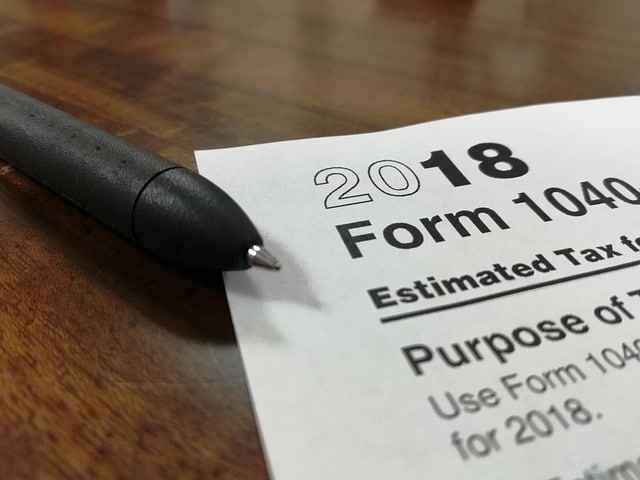
How long does it take to get a disability benefits approval letter?
So, you’ve applied for disability benefits and are waiting for your approval letter. You may be wondering what’s taking so long and whether you can expect good or bad news.
The process of applying for disability benefits can be difficult. To give you an idea, only 35% of disability claims are approved on the first application. That means the majority of applicants may have to undergo a longer application process involving appeals.
How long does it take to get a disability approval letter? It depends. Let’s go over some of the main considerations of the disability application process, as well as how to handle appeals.
All about the application process
Let’s first take a look at how long the application process takes and what may delay or speed up the process.
How long does the application process take?
According to the SSA, the average application decision letter takes between 3-5 months. Because each application is unique, SSA agents have to verify all the information. During this time, the office may or may not:
- Request medical records
- Request more information from the patient, such as a daily living form or a work history report.
- Request a Social Security doctor examination
- Request a financial interview
These are just some of the key steps that may occur within the 3-5 month timeframe before getting the final decision letter.
How can I check the status of my application?
Thankfully, it’s easy to check the status of your application. There are two convenient ways to check it.
Online (www.ssa.gov)
You can log into your SSA account and check the status of your application. This is perhaps the easiest way to quickly get an update.
If you don’t yet have an SSA account, you can sign up for one here. It’s straightforward to sign up, though you’ll need personal information, including your home address, SSN and an email address.
Signing up for an SSA account is a good idea. Here you’ll get a range of important information in one place, including:
- Your application status and submission date.
- The office currently processing your application.
- If any hearings are currently scheduled, including date and time.
For this reason, it’s worth signing up to get a more complete overview of your application status.
Automated phone line
If you don’t want to check your application status online, you can always call the automated phone line. You can call 1-800-772-1213 to find out the status.
How often should I check my application status?
As we mentioned, it can take up to five months to get a decision. We recommend checking the status every month or so.
However, it depends. You might check more frequently if you recently submitted more documentation or if your decision is overdue. In this case, you may check on a more regular basis.
When in doubt, you can always call the SSA office to ask about your application and why it’s delayed. They may have more information about your specific situation.
What can I do to speed up the process?
If you’re concerned about your application, you can call the SSA office and ask if there’s any other paperwork that they need. Sometimes they may have requested more documentation and are waiting for this to come through.
Besides asking if further documentation is needed, you may get a faster application time if you show special circumstances, including financial need, homelessness, certain veterans, safety threats and compassionate care conditions (see below).
In addition, you may consider asking your congress representative to help speed up your application, or reaching out to non-profit programs like SOAR.
What if I have a compassionate care allowance?
Within disability benefits, there is a fast-track application for applicants who have the following illnesses. This is called the Compassionate Allowance Initiative. The idea is to get these applicants benefits as soon as possible, as these illnesses are life-threatening.
- Acute leukemia
- Lou Gehrig’s disease (ALS)
- Stage IV breast cancer
- Inflammatory breast cancer
- Gallbladder cancer
- Early-onset Alzheimer’s disease
- Small cell lung cancer
- Hepatocellular carcinoma
- Pancreatic cancer
- Anaplastic thyroid carcinoma
With the Compassionate Allowance Initiative, your application will be flagged and you’ll be automatically approved.
Typical signs of approval
What are some signs that I will be approved?
There’s no guarantee that your disability benefits application will be approved. However, there are some common signs that you will be approved without an appeals process. These include:
- You earn less than the monthly substantial gainful activity salary. The substantial gainful activity (SGA) rate is how much the SSA defines as covering living expenses. If you make less than $1,260 a month for non-blind individuals and $2,110 for blind individuals, you may be approved for disability.
- You cannot work at your previous jobs. The SSA will look into your past work history and make sure you can no longer work at your past jobs.
- You worked recently and paid enough social security taxes. Paying enough money in taxes is an important requirement. The SSA expects you to have 40 tax credits, including 20 credits in the 10 years before your application.
- You have day-to-day difficulties and sufficient medical evidence. Medical evidence is a key factor in disability benefits. Documentation should show disruption to your daily living and mobility.
- You are a legal US resident. Only U.S. citizens and legal residents who contribute to Social Security taxes are eligible for disability benefits.
- You are of advanced age. If you are over 50 years old, SSA considers you an individual of advanced age.
If you’re looking for more information about these approval signs, you can get a more in-depth explanation in our guide here.
If approved, how soon will I receive my first disability check?
The typical timeline for getting your first disability check is 2-4 months. Sometimes this goes faster if it’s your reconsideration application.
All about denial and appeals
If your disability benefit application has been denied, try to stay calm. The majority of applicants are denied at first, for a variety of reasons. You may rightfully have a claim to disability benefits, though you’ll have to appeal to get them. Let’s take a look at why denial happens.
Why are so many applications denied at first?
The SSA receives a lot of disability applications. Given the volume of applications, SSA agents look at each application with high scrutiny. Overall, many applications are denied at first, because they’re:
- Incomplete
- Filled-out improperly
- Lacking medical evidence
It’s best to over-document your situation in your initial application to avoid being denied outright. However, don’t worry if you’re rejected, as there’s a formal appeal process.
How can I appeal the disability decision?
When you receive your denial letter, you’ll be given a reason for denial. If you decide to appeal, you should take this information seriously in order to improve your application.
In order to appeal, you’ll need to file Reconsideration forms. During the reconsideration appeal, agents will consider any new material and correct any mistakes.
How can I increase my chances of getting approved during the reconsideration appeal?
It’s highly recommended that you undertake the appeal process with a Social Security Disability lawyer or advocate. These individuals understand the disability system and can better aid you in filling in the gaps in your application. You should work closely with them to make sure all forms are completely and properly filled out.
How long does the reconsideration appeal take?
Reconsideration appeals can take between 2 and 4 months. This will depend on your application, new materials you submitted and office processing times.
What happens if my reconsideration appeal is rejected?
If your reconsideration forms are rejected, the next step is to request a hearing appeal. When you get this, you’ll be required to attend a hearing before an Administrative Law Judge (ALJ). Be sure to prepare for your appeal hearing and know when it’s scheduled. You’ll receive notice of the hearing well in advance.
How long does the hearing appeal process take?
Be aware that the hearing appeals process can be quite lengthy. The average processing time for getting a hearing is between 17 and 22 months.
What happens during the ALJ hearing?
During the hearing, you should have legal representation to help you navigate the process. At the end of the hearing, the judge will decide whether to grant you disability benefits or not.
What happens if the ALJ judge denies my application?
At this stage, most applicants decide to either stop applying, or they file a civil lawsuit in federal court. If you decide to go this route, you will need an attorney.
Tips for getting your disability approval letter
As we’ve mentioned above, the process of getting your disability application approved can range from five months for an initial application, four more months for a reconsideration appeal and 17-22 more months for a hearing appeal.
Given that most applicants are denied on their initial application, it’s important to do your best with the paperwork at every stage in the process. To increase your chances of success, you should:
- Review the disability programs and requirements
- Apply with complete forms, over-documenting instead of under-documenting
- Get a lawyer or advocate to help you through the process
Remember that getting denied at first is quite common – don’t give up if you believe you have a rightful claim to disability benefits!
Sources:
- Application Status, SSA, www.ssa.gov
- Social Security Disability Tips, Disability Benefits Help, www.disability-benefits-help.org
- Disability Factsheet, SSA, www.ssa.gov
- How to Check Status of Claim, Disability Benefits Help, www.disability-benefits-help.org
Related Articles

Can a Nursing Home Take All Your Assets?
This article has been reviewed by a practicing attorney in 2020 This content is not intended to be a substitute for professional legal advice. Always seek the advice of an attorney or another qualified legal professional with any questions you may have regarding your situation. A growing number of United States residents are seeking long-term […]

Bridge Loans for Seniors
Making the transition from everyday activities of working life to retirement can be difficult for individuals regardless of their age or situation. In addition, seniors’ lives can often include moving to a new state, home, or living facility, among other changes that can put a serious financial strain on them. If you are someone who […]

25 Financial Assistance Programs for Seniors
15 million seniors aged 65+ are economically insecure – and many more worry they don’t have enough to make it through retirement. With high costs of healthcare, housing, and food, seniors may need an extra hand to cover their basic needs. Fortunately, financial assistance programs are helping to bridge this gap so that seniors can […]

Irrevocable Trust Taxes
This article has been reviewed by a practicing attorney in 2020. This content is not intended to be a substitute for professional legal advice. Always seek the advice of an attorney or another qualified legal professional with any questions you may have regarding your situation. The irrevocable trust is a common estate planning tool. While irrevocable […]

How to Pay for Assisted Living
Assisted living can be an excellent option for you or a loved one, providing necessary daily support and social connections. However, figuring out how to pay for this senior housing option can be a challenge. Unlike nursing care, assisted living is not covered by Medicare, so alternative payment methods must be considered. Let’s explore the […]

A Guide to Veteran Benefits for Senior Living
Here at MyCaringPlan, we get a lot of questions from senior veterans looking for long-term care facilities. Often they ask us, “I’m a veteran, can that help me get senior housing?” The answer is absolutely yes. Elder veterans may qualify for an extra hand with their senior living options – whether an assisted living facility, […]